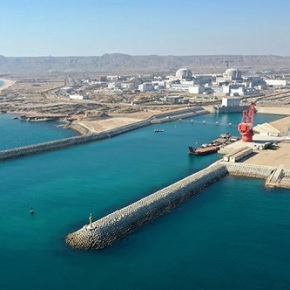 |
||
|
Philippines - discussion of deadlines AtomInfo.Ru, PUBLISHED 06.04.2022 Two officials of the Department of Energy of the Philippines, who spoke with reporters, are confident that the country is able to start implementing nuclear energy projects in three years, if the next government considers nuclear energy a priority goal. This is stated in the publication in Philstar.com. Recall that at the end of February 2022, Philippine President Rodrigo Duterte signed Executive Order No.164 recognizing the role of nuclear energy in the country's energy balance. It is too late for the current government to do anything in the nuclear direction, since new presidential elections will be held in about a month, in which Duterte does not take part. Duterte's successor, whoever he or she is, must either continue the course of building a nuclear power plant or abandon it. "If the next government wants to do this, then at the very best we will be able to start construction in about three years," said Patrick Aquino, director of Energy Utilization Management Bureau of the Department of Energy. "We need to adopt appropriate legislation and, most importantly, achieve public recognition at the national and local levels of the specific location of the nuclear power plant," he said. Deputy Energy Minister Gerardo Ergiza calls the three-year preparatory period "feasible, but with difficulty." In his opinion, it will be possible to start the construction of a nuclear power plant in three years if:
"The energy plan of the Philippines, our long-term energy program, provides that nuclear power will appear in 2030, but it may happen earlier, in 2027, as it was predicted two or three years ago," says Ergiza. Executive Order No. 164 of President Duterte requires the interdepartmental committee responsible for the nuclear energy development program to conduct additional studies on the possible use of the mothballed Bataan NPP worth $2.3 billion. The readiness of the plant was quite high, but its startup did not occur, and in 1986 it was decided to cancel it. In accordance with the decree, it is also necessary to consider other options for the development of nuclear energy. Energy Minister Alfonso Cusi is among the supporters of nuclear power plants and considers them "really safe" and capable of helping the Philippines to strengthen energy security. Topics: Asia, Philippines, Opinions Other news: Specialists of SSC RIAR have successfully completed the modernization of the VK-50 reactor This is the first and only operating pressurized boiling reactor with natural coolant circulation in the country. Ghana will decide on the site before the end of the year Four candidate sites are currently being explored. ROSATOM presents full Small Modular Reactors product line at EXPO 2020 Small Modular Reactors Day was an international platform for discussing the benefits of SMR. |
Hero of the day 
Fourth Hualong One unit connected to grid Unit 3 of the Karachi nuclear power plant in Pakistan was successfully connected to the gird on March 4, laying a solid foundation for its commercial operation. INTERVIEW
Vladimir Kriventsev OPINION
Victor Murogov |

